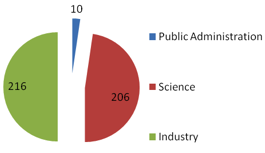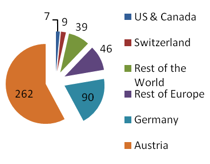Learn more
- Sep 14, 2011
Looking back at I-SEMANTICS 2011
For the 7th time, I-SEMANTICS, the International Conference on Semantic Systems, took place in Graz, presenting latest research outcomes and industry-ready applications to the wider public. Co-located with I-KNOW, the 11th International Conference on Knowledge Technologies, the event proved once again that the interest in semantic information processing is high and of increasing practical relevance.
More than 70 scientific and 40 industry presentations provided a valid overview over current technological and organisational trends in various areas of semantic computing like text mining, information retrieval, visual analytics, semantic content engineering, social semantic web and linked data. Especially the last topic appeared in many different contexts, showing that the linked data paradigm is gaining traction as a horizontal topic that crosses domains and communities.

This cooperative spirit was also represented by the four key note speakers, who took a deliberate practical approach to show how high level research fertilizes organizational reflexivity and triggers change for sustainability on a societal, cultural and economic level. Hence, Daniel A. Heim, Professor at the Computer Science Department of the University of Konstanz, Germany, showed how visual analytics have a stake in solving organizational problems. Gloria Mark, Professor at the University of California, Irvine, USA, talked about the challenges that derive from informational multi-tasking. Stefan Rueger, Professor at the Knowledge Media Institute of The Open University, United Kingdom, gave a talk about “potential, automation and limits of knowledge discovery in the web” and Christian Dirschl, Head of Content Strategy Department at Wolters Kluwer Germany, gave an insight in how one of the global players in legal publishing is utilizing linked data and semantic web technologies to prepare for the next step in web-based business diversification.
The next I-SEMANTICS will take place from September 5-7, 2012 in Graz again. Hope to see you there and enjoy the impressions …
